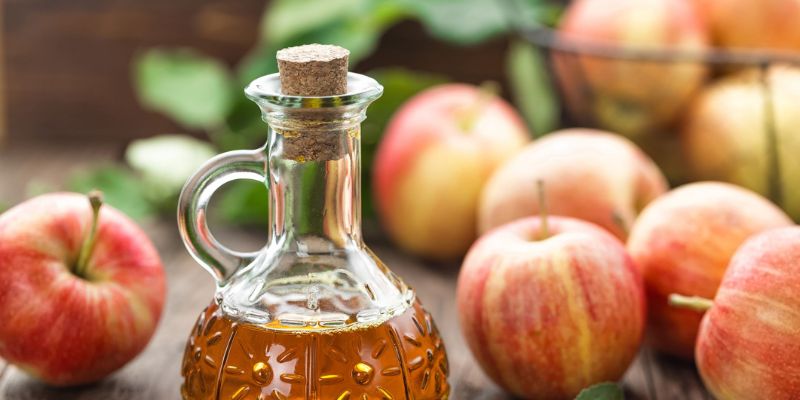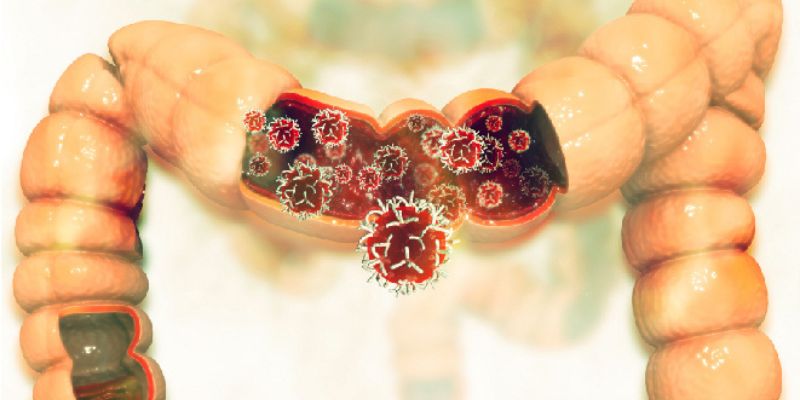If you suffer from allergies, you know how difficult it can be to find relief. From the irritation and discomfort of sneezing, coughing, and running nose to long-term effects such as asthma, allergy season can strain your everyday life. Fortunately, natural remedies can provide fast relief with fewer side effects than their medical counterparts.
In this blog post, we will explore the range of natural methods for managing seasonal allergies - from herbs and supplements to lifestyle changes - so you can regain control of your well-being.
What Are Allergies?
Allergies are an immune system response to a foreign substance that the body perceives as harmful. These substances, also known as allergens, can come from many sources, such as pollen, pets, and dust mites. When exposed to an allergen, your body produces antibodies to fight it off - this causes uncomfortable symptoms of allergies like sneezing and a runny nose.
Top Natural Allergy Relief Home Remedies
Honey
Eating raw honey can help to reduce your body’s sensitivity to allergens by introducing small amounts of pollen into your system. Raw honey is made of bee pollen, which can help desensitize your body’s immune system. A spoonful a day can make all the difference in reducing allergy symptoms. You should also try mixing it into tea or adding it to your breakfast cereal for extra relief.
Neti Pot
A neti pot is an ancient medical device used for centuries to reduce sinus congestion caused by allergies and colds. It works by flushing out irritants from your nose with a saltwater solution that you pour through one nostril and then out the other, much like a nasal rinse would do. The effects are immediate, and you will feel relief in minutes!
Apple Cider Vinegar
Apple cider vinegar is a powerful natural remedy for allergies. It works by reducing the histamine reaction in your body, which can help to reduce inflammation and other allergy symptoms. Mix one tablespoon of apple cider vinegar with one cup of water and drink it thrice daily for best results.
Vitamin C
Vitamin C is an essential nutrient, especially when fighting off allergies. It helps boost your immune system to fight off allergens more effectively. You can take vitamin C supplements or increase your intake of orange juice and other citrus fruits for extra protection against seasonal allergies.
Herbal Tea
Herbal teas like chamomile, ginger, and green tea can help to reduce the inflammation caused by allergies. These teas are also rich in antioxidants, which help to fight off free radicals that cause irritation and other allergy symptoms. Drink two to three cups a day for best results.
Probiotics
Probiotics are live bacteria that can help to boost your immune system and protect you from allergens. They work by introducing good bacteria into your gut, which helps improve digestion and keeps allergens from entering your body through the digestive tract. Add yogurt or kefir to your diet for extra protection against seasonal allergies. Probiotic supplements are also available in capsule form for easy consumption.
Acupuncture
Acupuncture is an ancient healing practice that involves placing thin needles on specific body points to reduce pain and inflammation. It can also help to reduce allergies by stimulating the body’s natural ability to fight off allergens.
Exercise
Regular exercise can help to reduce allergy symptoms by improving circulation and reducing inflammation. Try going for a walk or jog in the morning before you start your day, as this will help clear out your lungs and the sinuses of any allergens that may have built up overnight.
Essential Oils
Essential oils like lavender, eucalyptus, and peppermint are powerful anti-inflammatory agents that can help to relieve nasal congestion and other allergy symptoms. Add a few drops to your bathwater, or use an essential oil diffuser for extra relief.
Butterbur
Butterbur is an extract from a shrub-like plant used for centuries to reduce allergy symptoms like sneezing and itchy eyes. It works by blocking the release of histamine, which can help to reduce inflammation caused by allergies.
Stay Hydrated
Staying hydrated can help to flush out allergens from your body and keep your nasal passages clear so you can breathe more easily. Drink plenty of water throughout the day and try avoiding beverages with caffeine or alcohol, as these can further dehydrate you and make your symptoms worse.
Conventional Treatments for Allergies
Conventional treatments for allergies typically involve a combination of medications and lifestyle changes. Medications such as antihistamines, corticosteroids, and decongestants can help reduce inflammation and relieve allergy symptoms. However, these medications can also have side effects like drowsiness, headaches, and nausea.
Lifestyle changes are often recommended to reduce exposure to allergens and keep your environment free from irritants. These include avoiding outdoor activities during high-pollen seasons, keeping windows closed indoors, using air purifiers or HEPA filters at home, and bathing pets regularly to minimize the presence of allergens like pet dander. Allergy shots may also be prescribed if you suffer from more severe allergies.
Symptoms/Causes of Allergies
1. Itchy eyes: Allergens like pollen and dust can cause your eyes to become red, itchy, and swollen.
2. Sneezing: An allergic reaction to a foreign substance can cause excessive sneezing.
3. Runny nose: This symptom is caused by the body producing too much mucus in response to allergens.
4. Coughing: An allergen may irritate the lining of your throat or lungs, causing coughing fits.
5. Wheezing: This may occur when allergens inflame the airways and make it difficult for you to breathe normally.
6. Skin rash/hives: Allergens can also cause a skin rash or hives to appear on your body.
7. Itchy throat: This is often due to pollen or other airborne allergens irritating the lining of your throat and causing you to want to scratch it.
8. Headache: Allergies can lead to headaches as a result of nasal congestion, inflammation in the sinuses, and other symptoms.
9. Asthma: In more severe cases, allergies may trigger asthma attacks, which can cause chest tightness, shortness of breath, and wheezing.
By following these natural remedies and lifestyle changes for allergy relief, you can reduce the severity of your symptoms to enjoy life without worry or discomfort! Remember that all treatment plans should be discussed with your doctor before starting. You can live a life free from seasonal allergies with the right combination of natural remedies and conventional treatments!
FAQs
What helps relieve allergies fast?
Several natural remedies can help relieve allergies quickly. These include drinking apple cider vinegar, taking Vitamin C supplements or increasing your intake of citrus fruits, drinking herbal teas like chamomile and ginger, adding probiotics to your diet, getting acupuncture treatments, exercising regularly, using essential oils, and taking butterbur supplements.
How do I prevent allergies?
In addition to taking natural remedies or medication for seasonal allergies, you can also take preventive measures to reduce your risk of developing allergic reactions. This includes avoiding outdoor activities during high-pollen seasons, keeping windows closed indoors, using air purifiers or HEPA filters at home, and bathing pets regularly to minimize the presence of allergens like pet dander.
What foods cure allergies?
No specific foods have been proven to cure allergies; however, adding certain foods to your diet can help reduce symptoms. For example, probiotics like yogurt and kefir introduce good bacteria into your gut which helps improve digestion and keeps allergens from entering your body through the digestive tract. Vitamin C-rich foods such as citrus fruits or supplements can also help reduce inflammation caused by allergies.
Conclusion
Seasonal allergies can be difficult to manage, but you can find relief with the right combination of natural remedies and conventional treatments. From herbs and supplements to lifestyle changes, there are plenty of ways to regain control of your well-being this allergy season!






